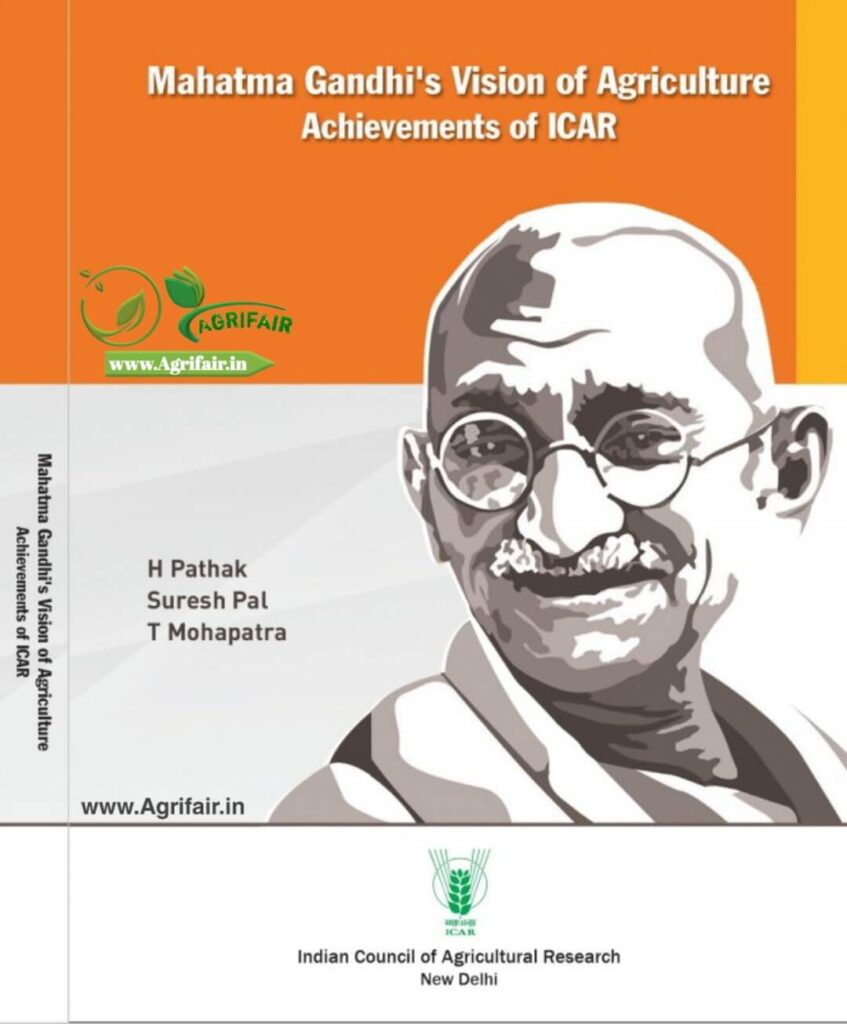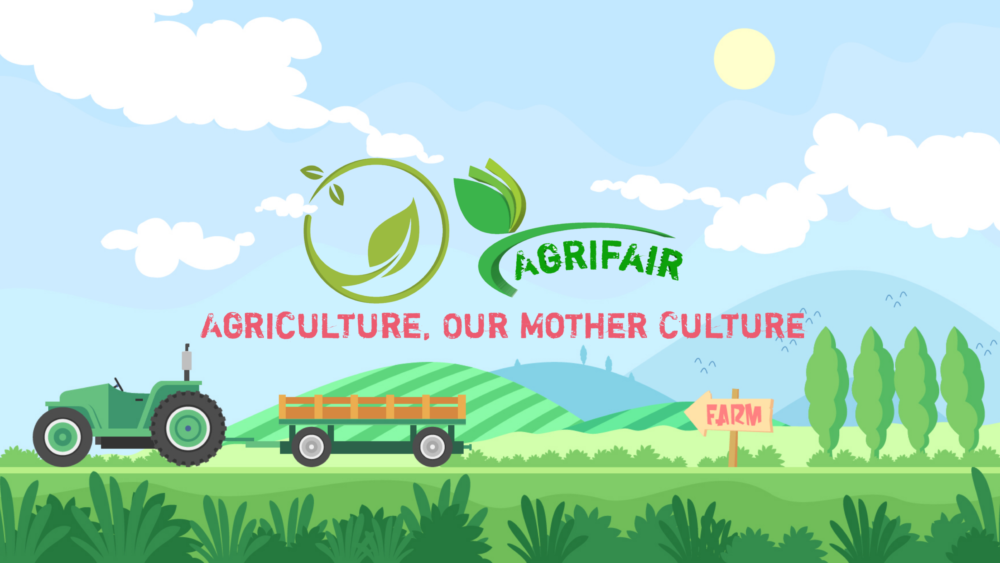Mahatma Gandhi’s Vision of Agriculture: Achievements of ICAR pdf

Mahatma Gandhi has inspired generations to maintain peace and harmony in the world. His vision of agriculture and rural development is globally acclaimed as a strategy for inclusive growth and collective governance. Development of agro-industries in the villages, upscaling of rural innovations and empowerment of people through skill development and education were central to the prosperity of rural areas and poverty reduction. The global experience has shown that the countries following the path of decentralization and rural industrialization have achieved faster economic growth and reduction in poverty. In India, the development of Panchayati Raj Institutions has shown its impact on the strengthening of the third tier of democracy, participatory development and empowerment of women.
Farmers form the bulk of India’s population and are the backbone of the country. With about55% of India’s population dependent on agriculture for its livelihood, the welfare of farmersassumesgreatsignificance.ForGandhiji,thefarmerwasthecentralpointforsustainablesocial order. According to him, the agriculture should be planned in such a manner that each village shall be self-sufficient in its food requirements. He asserted that the only way of bringing the progress and prosperity to India is development of rural economy, industry and skills. He wanted the village to be the central place in the national economic development with sound scientific and spiritual values. Gandhian vision of rural development is based on Antyodaya i.e., ‘the upliftment of the lastmanintherow’.Inprinciple,hewantedtoreconstructa‘harmonious,poverty-free,non-violent and self-reliant society’ on the basis of ethical principles marked by Hind Swaraj. Gandhiji insistedonthesocialworkerstorendereffectiveserviceinthevillage.Inordertodothis,they must acquire sufficient theoretical as well as practical knowledge about agriculture. Though a critic of modernity, Gandhiji was in favour of technology. He opposed the inequalities and hierarchiesofpowerandtheblindsubjugationofnaturetoman,resultingfromtheestrangement oftechnologicaldevelopmentfrommorality.Hewantedapeacefulandsustainableintegration of men, modernity and mother-nature. In spite of tremendous progress in last decades, several challenges are posed to Indianagriculture.Itishightimethatwelearnlessonsfromthepastandplanoutstrategies,whichare relevant to our times following Gandhiji’s vision, which gives us a rare insight into the future of mankind.
Book Detail: Mahatma Gandhi’s Vision of Agriculture: Achievements of ICAR
Language: English
Pages: 286
Click below to Download PDF Book

Book contents
1. Realizing Gandhiji’s Vision for Agriculture and Rural Development:
Role of ICAR Innovations
Trilochan Mohapatra, Sanjay Singh and Suresh Pal
2. Horticulture for Rural Livelihood and Nutritional Security
AK Singh, S Sriram, ES Rao, Santosh Eapen and MR Dinesh
3. Improvement of Indigenous Cattle: Gandhian Perspectives
BN Tripathi, MS Chauhan, A Mukherjee, VK Saxena and V Bhasin
4. Improvement in Goat Production for Sustainable Rural Livelihood 39
BN Tripathi, Ashok Kumar, AK Dixit, B Rai and VK Saxena
5. Importance of Gandhian Model of Local Self-Reliance in Aquaculture
and Fisheries
JK Jena, PC Das and A Panigrahi
6. Agro-biodiversity, Ecology and Agriculture: Gandhian Thoughts
TR Sharma, Kuldeep Singh, K Gupta, N Sivaraj and John K Joseph
7. Local Interventions in Natural Resources Management for Global Gains:
Gandhian Principles
SK Chaudhari, S Bhaskar and A Islam
8. Organic and Low Input Agriculture: Gandhian Way
AS Panwar, N Ravisankar, SK Sharma and G Suja
9. Environment-friendly Agriculture: Gandhian Principles
H Pathak, M Shahid, Neeraj Kumar, N Jain and Jagadish Rane
10. Small Agri-Enterprises and Waste Management: Gandhi’s Thoughts
CR Mehta, S Gangil, R Naik and SK Giri
11. Nutri-cereals for Food and Nutritional Security: Gandhian Principles
Vilas A Tonapi, Nepolean Thirunavukkarasu,
Lakshmi Kant and K Haiprasanna
12. Science-led Agricultural Development: Gandhian Thoughts
Ch. Srinivasa Rao, P Krishnan and V Ragupathy
13. Gandhian Philosophy of Agricultural Education
RC Agrawal, G Venkateshwarlu and PS Pandey
14. Gender Empowerment through Village Institutions and Education
SK Srivastava and G Maharana
15. Gandhian Philosophy of Self-reliance: Lab-to-Land Initiatives of ICAR
AK Singh,YG Prasad, VP Chahal, Randhir Singh and R Roy Burman
16. Ethics in Agricultural Science: Gandhi’s Principles
K Alagusundaram
17. Gandhian Philosophy of Sustainable Agriculture: Path Ahead
